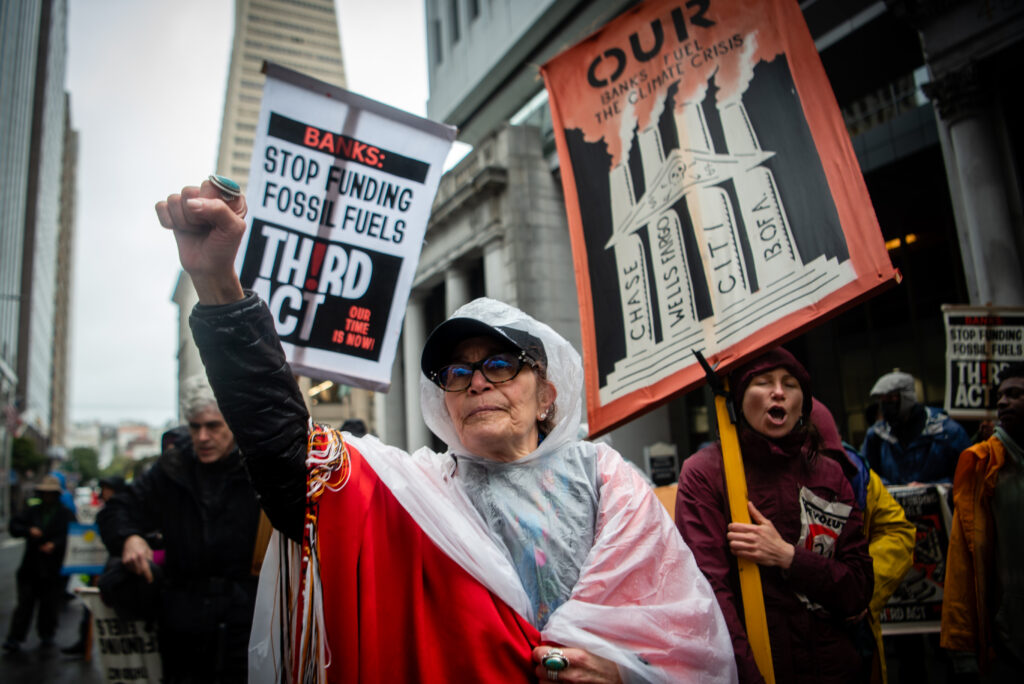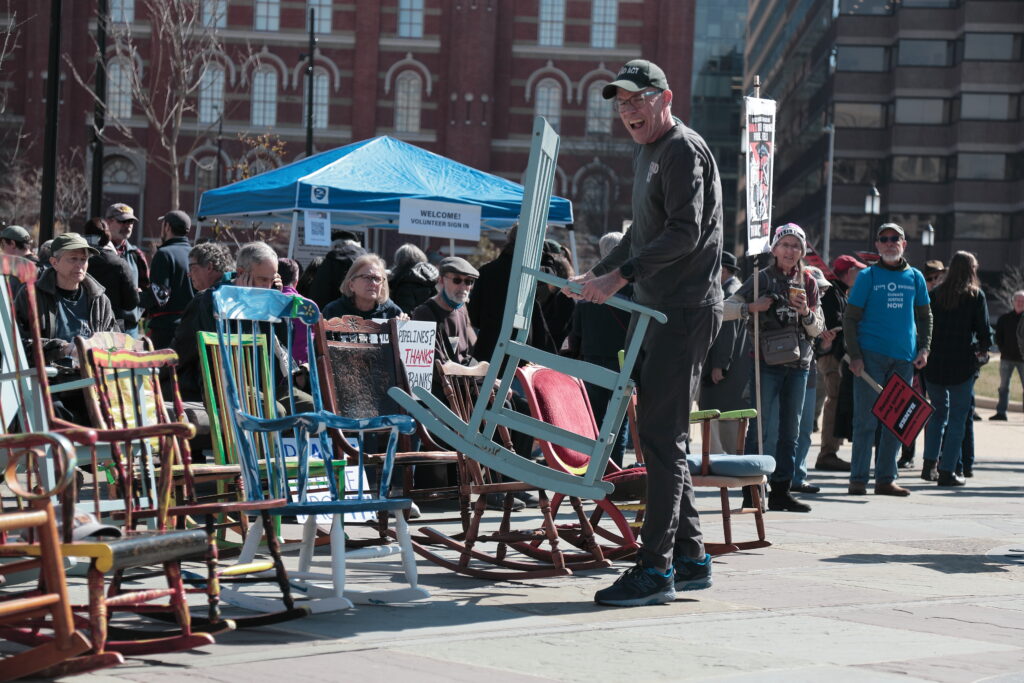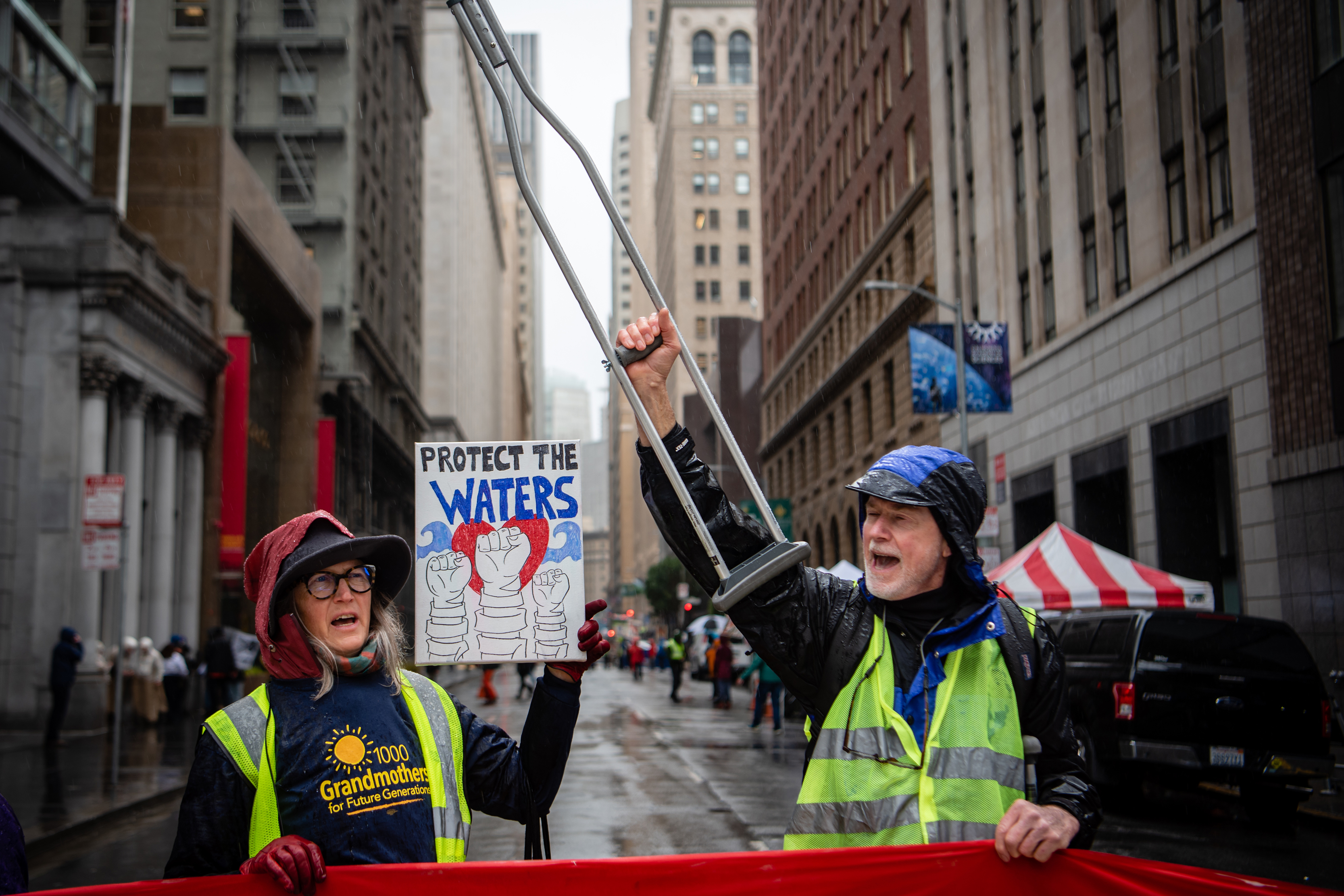We spoke to Bill McKibben, founder of Third Act, about how activism at an older age is not only important for older people but necessary for society.
Bill McKibben is an environmentalist and founder of Third Act, an organisation that promotes social and environmental activism among older individuals to utilise their skills, experience, and time to support meaningful causes.
What inspired you to start Third Act?
In my 20s, I wrote my first book on the subject of climate change, which is now known as The End of Nature (1989). Since then, I have been actively involved in the matter of climate change and have been collaborating with young people for most of my life. They effectively established a youth climate movement and I really believe it’s appropriate for young people to lead the charge since they will have to endure the effects of climate change for their entire lives. However, I began to worry about the number of people who claimed that it was up to the next generation to solve this problem. Which seems unfair and highly impractical.

“I began to worry about the number of people who claimed that it was up to the next generation to solve this problem. Which seems unfair and highly impractical.”
Can you elaborate on that?
Young people lack sufficient structural power to make changes on the scale we need. When you look around for who does have that power, it’s the people over the age of 60. Their political influence is vast, and if we could harness it, it’s more than enough to get the attention of congressmen/women and senators because they know older people are active voters. When it comes to voting, older people tend to have more influence than younger people because they vote more frequently. We have around 70 million people over 60 in the US, a number that’s increasing by 10,000 every day. That’s more people than are born in the US daily.
In what other way can these millions of people use their influence?
Well, fair or not, the baby boomers and the Silent Generation above us hold a larger share of the country’s financial assets than the younger generation. So, if you want to make some changes in Washington or Wall Street, it’s probably good to have people with hairlines like mine engaged in the fight.
“This older generation grew up in a period of remarkable political, social, and cultural transformation. So that muscle memory in this group is very strong.”
Considering these reasons, it’s interesting that we don’t typically associate older people with activism. Why do you think that is?
Historically, we have been setting old people aside. They’ve been encouraged to retire, meaning to retreat or go away. But this is changing as older people are living longer and healthier lives, particularly in this country. Also, there’s this thought that people become more conservative as they age and therefore are less likely to take to the streets.
Is there any truth to that thought?
For this older generation in particular, it’s not necessarily true. For them, growing up in young adulthood was actually in a period of remarkable political, social, and cultural transformation. It was the time when women began to be taken seriously in public life, marked by the height of the civil rights and anti-war movements, as well as the first Earth Day. So that muscle memory in this group is very strong. We’ve found that many people who were dedicated to those causes are still passionate about them and eager to continue working hard. As a result, we have had no difficulty in finding tens of thousands of volunteers to help with our initiatives.

Have you seen older people personally benefit from being activists?
They benefit extraordinarily. We receive great reactions from people all the time, and most of them are incredibly grateful for the opportunity to feel like they are playing a role in something meaningful. The worst thing about ageing can come from a sense of no longer having an important role to play in society, especially in the US, which is so career and work focused.
Are there any other benefits?
The other thing is that movements offer a place where people can mix easily with others from different age groups, which is something that many older people appreciate. In a society where many people now live in age-segregated communities, including retirement communities, this is especially important. That’s the best thing, to see people of different generations and backgrounds come together for a common cause.
And how does the relationship between different generations work when it comes to activism?
One of the insights I’ve had is that this relationship works very well. Older people and younger people like high school and college students—it’s a natural match. I think because the relationship between grandparents and grandchildren is often easier than the relationship between parents and children. There’s just way less tension. Last year, we did a big thing called Seniors to Seniors (older people writing to high school seniors), urging them to vote and telling them what voting had meant in their lives. And for those who participated in the program, they had the reaction I’ve described. They really liked this sense of connection that came with receiving the letters. It turns out that if you’re 17 or 18 now, you’ve likely received very few letters in your life, so that made the experience unique.
“One of the insights I’ve had is that this relationship works very well. Older people and younger people like high school and college students—it’s a natural match.”
Do older activists have unique strengths that younger people don’t have?
Well, absolutely. By the time you reach your 60s you’ve often built up a great deal of skills and knowledge in a particular field. For instance, we have a group of lawyers in their Third Act who provide diverse legal assistance, a team of retired educators and teachers in our community who are involved in developing and writing curriculums, and much more. I’ve noticed that older people are enthusiastic about engaging across all kinds of lines. They don’t mind doing tasks that may not always be exciting. Like the work we’re currently doing on energy policy, where members are willing to undergo long, boring meetings to learn more about it. That’s kind of their superpower. It’s a generation that’s also not shy about contacting political officials, bank managers, or anyone else to express their opinions, which can be incredibly valuable.
To learn more about Third Act or join their movement, you can find more information on their website ThirdAct.org.


No Comments.